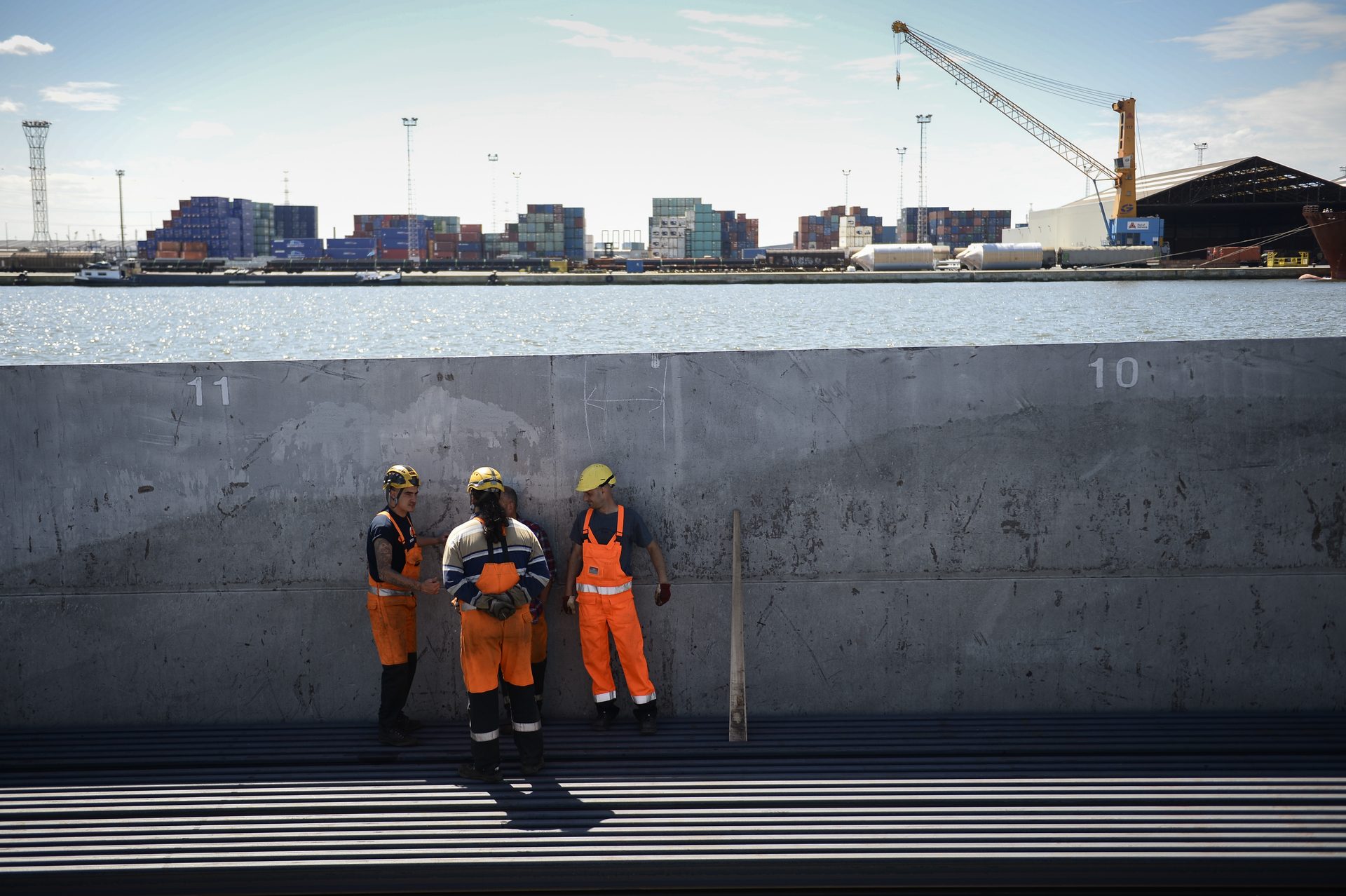Getting into the EU presents an administrative barrier difficult to overcome for citizens of "third countries" (outside the bloc). One of the main entry points is via labour markets, with Member States deciding on visas according to their areas of interest.
In Belgium's case, economic migration provides a way into the EU for thousands of workers, the federal migration centre Myria showed in its annual report. The organisation's analysis shows that in 2022 a total of 9,900 visa applications were made for occupational reasons – up 59% since 2021 and more than double the number during the pandemic-marked year of 2020.
"This is an increase of 46% compared to the previous year, and significantly more than before the Covid-19 crisis," Myria noted in its report. Indian nationals made up the largest share (23%), followed by those from Turkey (15%), Morocco (6%) and Tunisia (5%).
Whilst Indian nationals have historically accounted for the greatest proportion of visa applications, their number increased by 39% in 2022 compared to 2021. Myria also observed "a notable increase in the number of visas issued to Turks, Moroccans and Tunisians", explaining that their numbers almost doubled compared to 2021.
In previous years, more such visas were granted to workers from Japan and the United States.
Easier access
Details on the exact routes for economic migrants into Belgium are sparse, with no dedicated database to provide insight into the motivations. Myria analysed the number of so-called "combined licences" or single permits, which combines work and residence permits.
Almost 20,000 such licences were approved last year – an annual increase of 75%. Whilst these permits were previously granted mostly to highly skilled workers they have lately been offered more to low- and medium-skilled workers, in particular those filling bottleneck jobs, and by workers subject to labour market screening.
"In other words, by 2022, the share of low-to-middle-skilled profiles within the combined permit system rose significantly," the report stated. Since 1 January 2023, third-country nationals who are already working legally in the country but whose stay is coming to an end can now apply for such a permit while still in Belgium.
The organisation hailed this "a positive development that ensures that people who want to change status and are eligible to do so no longer need to travel back to their country of origin to submit the application."
Meanwhile, the war in Ukraine also had an impact on economic migration in Belgium, with citizens of the war-torn country able to obtain an attestation of temporary protection, giving them unrestricted access to the labour market without having to obtain admission to work through a Belgian employer.
Criticism of the system
The report also showed that 214,062 people last year were posted to Belgium. This concerns people employed elsewhere by a company but who works in Belgium. Their number increased by 7% compared to 2021.
The majority of people posted in Belgium (39%) work in construction, followed by metal works, electrical installation works, petrochemicals, meat processing and ICT. Among them, 78% are EU citizens, and 21% are non-EU nationals (mainly from Ukraine, Brazil, Belarus and Bosnia-Herzegovina).
Myria stressed that they are more vulnerable to exploitation than EU nationals and are in urgent need of more robust legal protections. It highlighted that the increase in single permits must be accompanied by additional guarantees for workers. At present, these permits tie the worker to a specific job with a specific employer, leaving them vulnerable to exploitative situations.
A recent proposal by the European Commission would allow workers to change employers more easily if they find themselves in a toxic working environment.
Related News
- Job creation in Belgium three times lower than needed
- Understanding Belgium: Is civic integration mandatory for all?
Myria stressed that the application process for single permits in Belgium should be more transparent, for example by giving these workers access to the electronic file where they can consult the application and check which documents have been submitted by their employer, as these are sometimes changed after the migrant worker signed the contract.
This would allow workers applying for a permit abroad to travel to Belgium immediately upon being granted the document. The organisation concluded by calling for a system that depends less on the employer and grants more access to information in order to better protect individual migrant workers.


